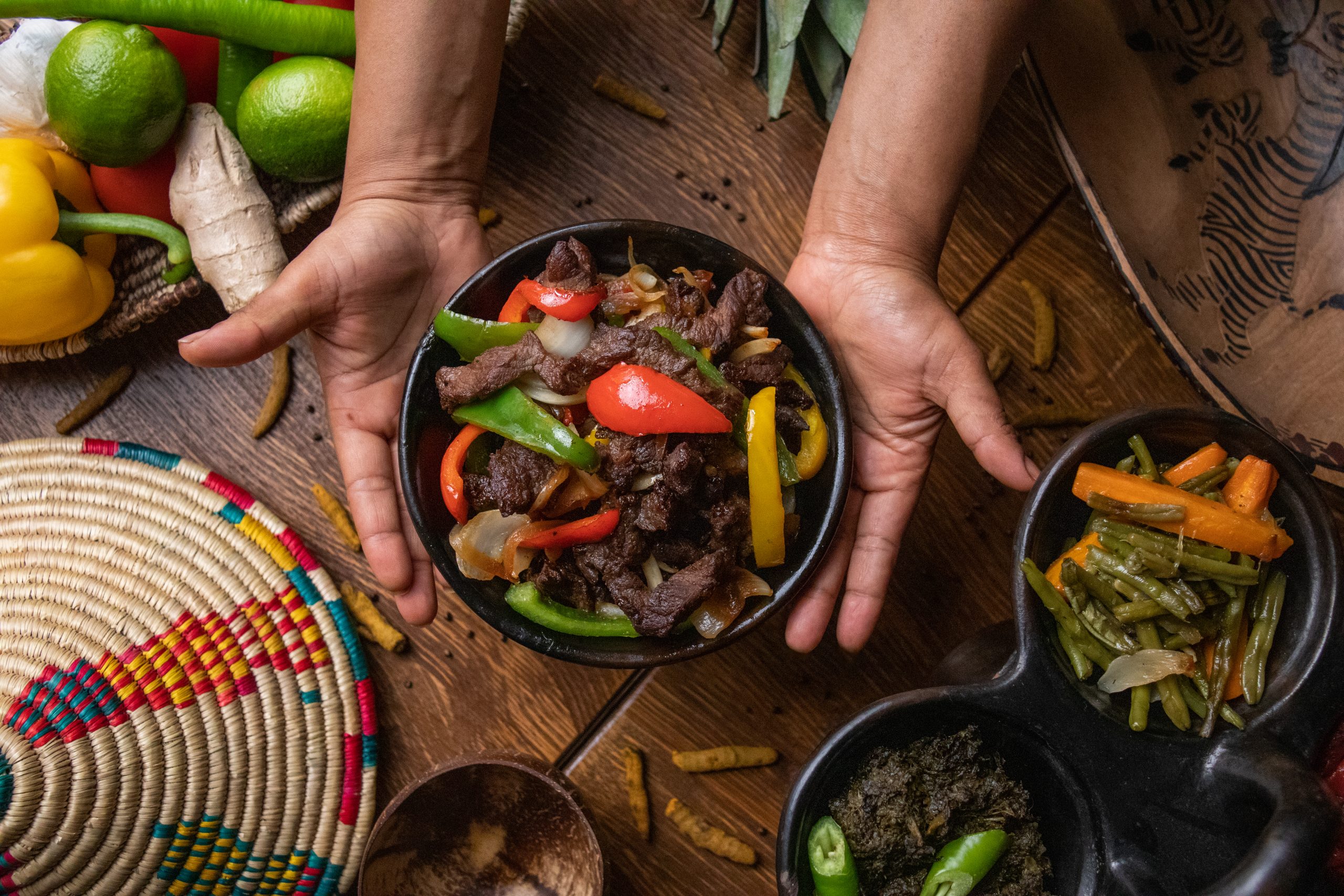Are you tired of feeling drained and fatigued during your workouts? Do you struggle to maintain the energy and stamina needed to push through those tough training sessions? Look no further, as we have the ultimate solution. Incorporating proper nutrition into your training regimen can be a game-changer in boosting your endurance and overall performance. Say goodbye to exhaustion and hello to achieving new personal bests with these effective ways of fueling your body for success!
What are the benefits of nutrition and exercise?
If you’re looking to improve your energy and stamina, incorporating nutrition into your training regimen can be a great way to do so. Nutrition can help you attain better results from your workouts by providing the fuel you need to perform at your best, as well as contributing to overall muscle growth and development. Additionally, by following a balanced diet and engaging in regular physical activity, you can reduce the risk of developing chronic diseases such as obesity and heart disease. Here are some of the benefits of nutrition and exercise:
1. Improved Energy Levels: One of the primary benefits of nutrition is its ability to provide energy for workouts. By eating foods that contain carbohydrates, protein, and healthy fats, you’ll be able to fuel your body with the energy it needs to get through your workout sessions without feeling tired or drained later on.
2. Greater Muscle Growth: Another benefit of proper nutrition is that it can help promote muscle growth during workouts. This occurs because nutrients such as protein provide essential building blocks for muscle tissue, while healthy fats help maintain cell membrane fluidity and prevent cellular damage. In addition, consuming fruits and vegetables can also boost the absorption of nutrients into the body, helping ensure that all the important vitamins and minerals are taken in properly.
3. Reduced Risk of Chronic Diseases: When you make proper food choices not only will you feel more energetic throughout the day but also reduce your risk of developing chronic diseases such as obesity and heart disease. Obesity is a major contributor to chronic diseases
How can you make sure your nutrition is effective?
There are a number of ways to make sure your nutrition is effective for boosting energy and stamina. Here are five tips:
1. Make sure you’re getting the right types of nutrients.
You need both protein and carbohydrates to fuel your body, so make sure you’re including both in your diet. Good sources of protein include lean meat, tofu, eggs, legumes, and dairy products. Carbohydrates should come from whole grains, fruits, and vegetables.
2. Avoid sugary drinks and processed foods.
Both sugar and processed foods can spikes your blood sugar levels quickly which will result in fatigue later on in the day. Drink plenty of water to stay hydrated as well!
3. Get enough fiber.
Fiber is important for maintaining regularity and helps reduce bloating and gas symptoms associated with digestion problems like IBS. Aim to include at least 25 grams of fiber per day in your diet from fresh fruits, vegetables, whole grains, legumes and nuts/seeds.) Fiber may also be found naturally in some teas such as green tea or black tea.)) ) ) ) ) ) ) ) Eat slowly over a period of time – Taking small bites throughout the meal will help slow down digestion and keep you feeling fuller longer.. Eating at least one hour before bedtime will allow your body to rest properly while you sleep.)) Include probiotics regularly – Probiotics can help improve gut health leading to better digestion by
What types of foods are best for energy and stamina?
When it comes to boosting energy and stamina, there are a few things you can do to make sure that your meals and snacks are packed with the nutrients your body needs. Here are some effective ways to incorporate nutrition into your training regimen:
Focus on complex carbs. Complex carbs contain more protein and fiber than processed carbs, which contributes to longer bouts of energy and improved endurance. Try incorporating quinoa, brown rice, or sweet potatoes into your diet as part of your regular rotation.
Include plenty of healthy fats. Your body needs healthy fats in order to produce energy and perform optimally. Saturated and unhealthy fats can help increase circulating blood flow, helping you stay energized throughout the day. Some good options include avocado, olive oil, coconut oil, or nuts and seeds.
Drink plenty of water. Because dehydration can sap energy levels, drink enough water throughout the day – even if you’re not feeling thirsty! It’s also important to avoid sugary drinks – they’ll just add sugar to your bloodstream and lead to added cravings later on (and no bueno for overall weight loss). Opt for sparkling water or unsweetened iced tea instead.
How can you increase your endurance through food choices?
Many athletes believe that they have to limit their intake of carbohydrates in order to maximize endurance performance. However, there are many other types of food that can help increase stamina and energy levels. In this article, we will discuss some effective ways to incorporate nutrition into your training regime in order to boost endurance performance.
First and foremost, make sure you are eating enough protein. Protein is essential for maintaining muscle mass and preventing fatigue. Furthermore, because protein stimulates the release of insulin, it can help reduce blood sugar levels which can lead to improved performance. Try to include at least 2-3 grams of protein per pound of bodyweight each day in order to optimize endurance performance.
Secondly, make sure you are including adequate amounts of carbohydrates in your diet. Carbohydrates are an important source of energy for athletes and can help improve stamina and energy levels. Aim to consume 25-30 grams of carbs per hour during endurance activity in order to prevent fatigue. Try to include complex carbohydrates such as fruits, vegetables, and whole grains as these will provide lasting energy reserves.
Finally, be aware that consuming excessive amounts of sugar can actually have a negative impact on endurance performance. Sugar causes the body to release adrenaline which leads to increased heart rate and ultimately greater fatigue. Limit yourself to no more than 6-8 teaspoons (or 24-32 grams) of sugar per day in order to avoidnegative consequences on your endurance performance.
How can you tailor your diet to suit your specific needs?
There are a number of ways you can tailor your diet to suit your specific needs as an athlete. For example, if you’re looking to boost energy and stamina, incorporating nutritious foods into your training regimen can be very effective. Here are some tips on how to do just that:
1. Make sure to include plenty of carbohydrates in your diet. Carbohydrates provide energy and help the body use glycogen (a form of glucose) for energy during exercise. Some good sources of carbs include fruits, vegetables, grains, and beans.
2. Try to eat low-fat or non-fat sources of protein throughout the day. Protein is important for building muscle and aiding in the recovery process after physical activity. Some good sources of protein include animal proteins such as chicken, beef, and fish, as well as plant-based proteins like soybeans, almonds, and legumes.
3. Add healthy fats to your diet regularly. Healthy fats have been shown to be beneficial for overall health and can help improve cognitive function and increase strength levels. Some good healthy fats to add to your diet include olive oil, nuts, seeds, avocados, and leafy greens such as spinach or kale.
Conclusion
If you’re looking to boost your energy and stamina, incorporating a healthy diet into your training regimen is key. We’ve provided a few tips on how to do just that, and we hope that they help you achieve the results you desire. Stay strong!










